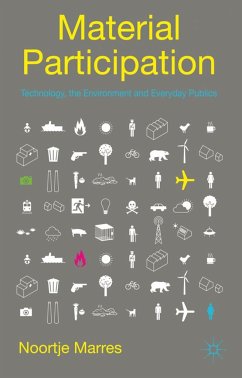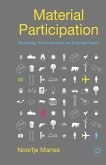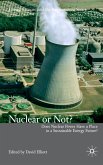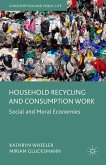This book develops a fresh perspective on everyday forms of engagement, one that foregrounds the role of objects, technologies and settings in democracy. Examining a range of devices, from smart meters to eco-homes, the book sets out new concepts and methods for analyzing the relations between participation, innovation and the environment.
"[A] rich and stimulating book.'' - Journal of Cultural Economy
"Marres' attention to the material conditions of political participation is not a return to materialism but a deep redefinition of each of those terms: why does politics matter and what does it mean to be involved into politics? Before her a pragmatist view of politics and publics remained abstract, without a clear method to follow the objects, pragmata, that give relevance to the creation of the public. Marres' work deeply renews what it is for the study of politics and participation to take material conditions seriously." - Bruno Latour, Professor, Sciences Po, Paris, France
"Material Participation is a book about the role of objects in political participation. It is part of what has been called the object turn what Noortje Marres, more delightfully, calls the coming out of things. It is an account of how moral and political phenomena may unfold on the plane of things. It deploys a vocabulary of modality, multi-valence, implication, accomplishment, setting and relevance to make visible the middling work of objects. And in doing so offers us the possibility of taking part in a politics of co-articulation, of producing new, more variable kinds of connections between publics, ontology, and the empirical." - Celia Lury, Professor, Centre for Interdisciplinary Methodologies, University of Warwick, UK
"Marres' attention to the material conditions of political participation is not a return to materialism but a deep redefinition of each of those terms: why does politics matter and what does it mean to be involved into politics? Before her a pragmatist view of politics and publics remained abstract, without a clear method to follow the objects, pragmata, that give relevance to the creation of the public. Marres' work deeply renews what it is for the study of politics and participation to take material conditions seriously." - Bruno Latour, Professor, Sciences Po, Paris, France
"Material Participation is a book about the role of objects in political participation. It is part of what has been called the object turn what Noortje Marres, more delightfully, calls the coming out of things. It is an account of how moral and political phenomena may unfold on the plane of things. It deploys a vocabulary of modality, multi-valence, implication, accomplishment, setting and relevance to make visible the middling work of objects. And in doing so offers us the possibility of taking part in a politics of co-articulation, of producing new, more variable kinds of connections between publics, ontology, and the empirical." - Celia Lury, Professor, Centre for Interdisciplinary Methodologies, University of Warwick, UK








